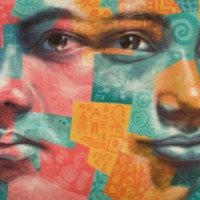
*Not their real name
Narrative provided by Human Rights Watch
There are an estimated 1,386,000 people living in modern slavery in Nigeria (GSI 2018). Since 2009, Nigeria’s homegrown Islamist insurgent movement, Jama’atu Ahlis Sunna Lidda’awati wal-Jihad, popularly known as Boko Haram, which means “Western Education is Forbidden,” has waged a violent campaign against the Nigerian government in its bid to impose Islamic law. The attacks have increasingly targeted civilians, mainly in the northeastern states of Borno, Yobe, and Adamawa. Borno State, the birthplace of Boko Haram, has suffered the highest number of attacks. A range of issues, including widespread poverty, corruption, security force abuse, and longstanding impunity for a range of crimes have created fertile ground in Nigeria for militant armed groups like Boko Haram.
In some cases, women and children are abducted from predominantly Christian areas and forced to convert to Islam. As an attempt to escape, some would pretend to be Muslim. Where forced conversion did not lead to the release of abductees, it usually led to forced marriage to members of Boko Haram. 38-year-old Rayowa* was abducted in April 2014 with five other Christian women and two infants.
